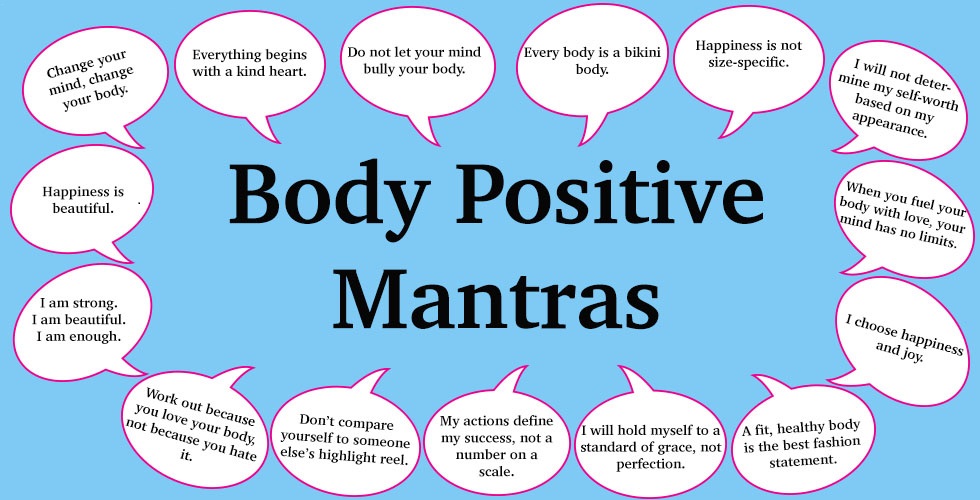It’s part of human nature to talk to ourselves. The key is to discover what we are saying and figure out if the message is right. When we change from a negative message to an empowering one, we can alter the course of our lives. For me, I know I’m going to talk to myself, the question is: What am I saying?
Becoming mindful of the messages we rehearse allows us to modify them. Adopting a new mantra empowers transformation as we internalize a new life script. Here’s how it works. Let’s say you regularly tell yourself that you’re stuck or that you don’t know what to do next. On the surface this may look like discouragement and worry. Underneath it is an internal script made up of messages replaying in your mind and heart that shape how you think about yourself and how you respond to your situation.
Your Mantra Keeps You Positive and Strong
Do you buy new outfits to change your look as the seasons change? Do you change your mantra just as often as you can? If not, it may be time to. That’s because the same mantra doesn’t always work for us, year after year. If your well-being or path towards change is feeling stagnant or slow, it may be time to change things up. Ask yourself these questions to see if it’s time for a change:
1. Am I happy?
2. How is my health?
3. Am I using my creative energy?
4. Do I have a good life?
5. Do I enjoy the company of others?
6. Do I pay my bills on time?
7. Do I have a savings account and do I put money into it regularly?
8. Do I like my job?
9. Do I have good friends who treat me as well as I treat them?
10. Do I have a Plan B?
11. Do I have a strong sense of self?
11 is the Number of Enlightenment
You should ask yourself these 11 questions because 11 is the number of enlightenment. If you’ve answered “no” to any of these questions, you are not working toward your highest good and it’s definitely time to change your mantra. Mantras are a sound that you can say out loud or in your mind to bring a sense of peace and joy to your life. It is also possible and a good idea to have positive affirmations that can be used as mantras to deal with special needs that occur at different times.
Some of My Favorite Mantras

One of my favorite mantras is from the lovely Tim Gunn. He says, “Make It Work.” This can be used when frustrated and in a mood where you are feeling like there is no way to get it done.
“I am bigger then my problems” is another mantra that lets you release negative thoughts about situations and allows you to find peace of mind so that you can accomplish your task.
“Today I will live in the moment” helps you take it one day at a time to develop what is needed to stay focused.
“Challenges and hurdles allow me to rise to my highest self” means that you are ready to take on a good challenge.
“I give as good as I get” makes you think about whether you give freely or with condition. This mantra rings in karmic energy.
“I will have ‘me’ time today.” How often do you really take time for yourself? Life moves so quickly that we often find ourselves too tired to do anything other than the daily grind.
Positive and Strong
If used properly, mantras work throughout our lives to keep us positive and strong. Mantras are the keys that unlock worry, ease the mind and release more mental energy. When we commit to taking care of ourselves on all levels (mind, body and spirit), we find that we can run like a finely tuned machine.


I appreciate the systematic approach suggested by the author, particularly the eleven questions for self-assessment. This pragmatic framework provides a structured way to evaluate one’s life and identify areas that might need a shift in mindset.
The idea of using mantras to induce positive change is well-articulated. The notion that our internal dialogue shapes our external reality is both profound and practical. The list of questions and mantras offers a comprehensive guide for anyone looking to improve their mental framework.
The link between internal dialogue and personal empowerment is certainly intriguing. The specific mantras highlighted in the article offer a diverse set of tools to address various challenges, making the concept accessible to a broad audience.
The article makes a compelling case for the impact of self-talk on one’s life trajectory. It is interesting to note how mindfulness of our internal script can lead to transformational change. The list of mantras is particularly useful as it offers a practical approach to refocusing our mental energy.
The article provides a nuanced look at the importance of self-talk and how changing our internal narrative can lead to significant personal growth. The emphasis on mindfulness and active self-assessment is a refreshing take on achieving emotional and mental well-being.